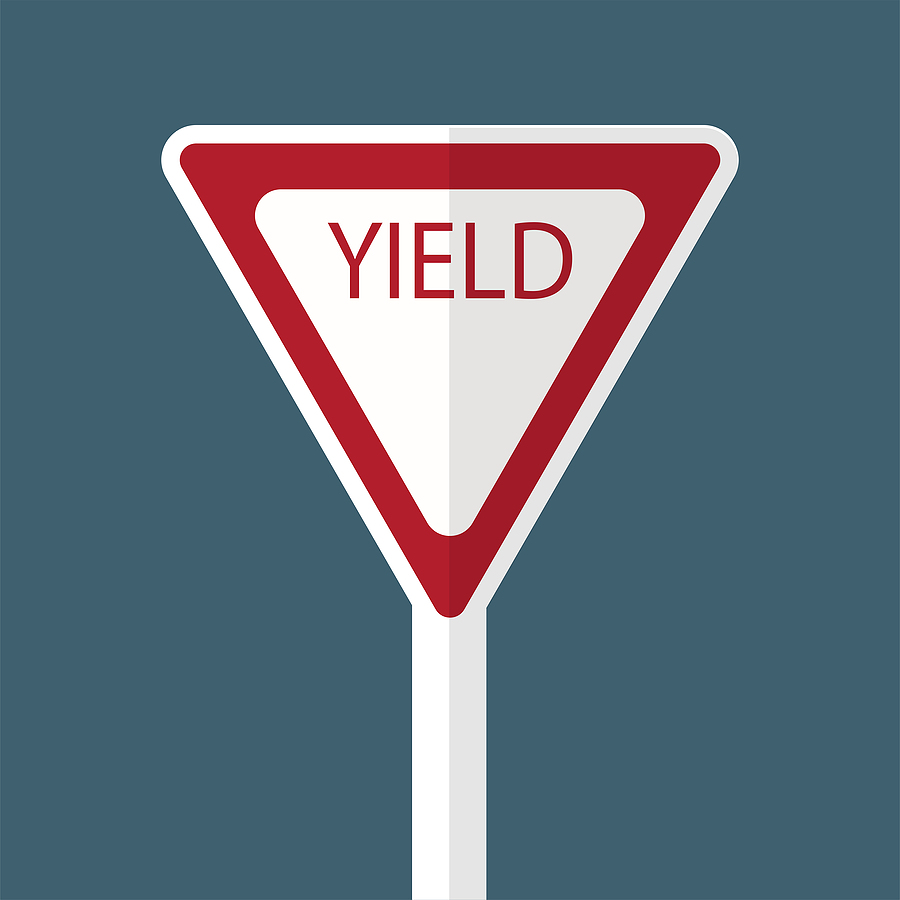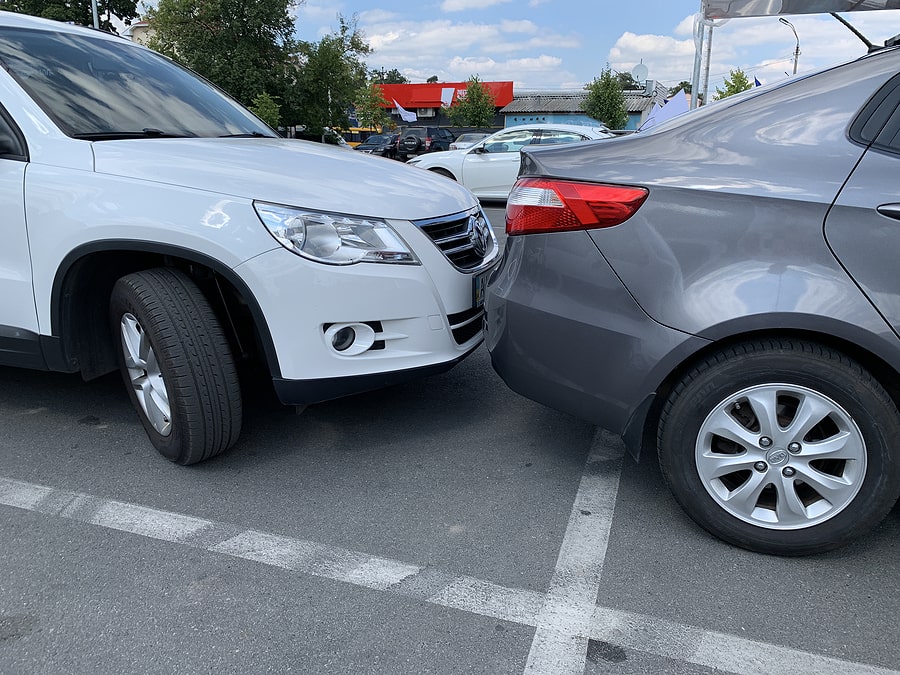Most of us completed driver’s ed years ago, but it’s surprising how many drivers have persistent questions about who has the right of way at four-way intersections, when entering the highway from an off-ramp, or when there is a flashing yellow light at an intersection. Not only does the right of way and failure to yield cause confusion, but this lack of understanding can also cause serious accidents on the roadway that lead to severe injuries.
What Is the Meaning of Yielding the Right of Way?
“Yielding the right of way” basically means letting others in the roadway go before you go. How do you know when this is appropriate? There are usually indications that you should yield, specifically a yield sign. If you see one of these signs, it means that drivers already in the roadway get to go first.
Rules governing the right of way are determined by state and local authorities. All drivers in Texas must follow the state’s laws regarding rights of way. Some of these pertain to traffic signs, intersection travel, and pedestrians. At any time when a driver is required to stop before proceeding onward, the driver must yield the right of way to a pedestrian. Drivers are also required to stop before they enter a crosswalk if they have a red signal or stop sign.
Dealing With Rights of Way and Intersections
When a driver enters an intersection where more than one driver is required to stop, there are specific rules that may also apply. Drivers must carefully adhere to these rules in order to avoid accidents.
Some rules that all drivers should be aware of include:
- Drivers who stopped first – Whenever there is an intersection that involves multiple vehicle entries, the driver who arrived at the intersection first has the right of way.
- Drivers to your right – Should two or more vehicles approach an intersection simultaneously, the driver to the right has the right of way. All other drivers must yield the right of way.
- Drivers turning left or right – A driver who is making a left- or right-hand turn must always yield to traffic that is traveling straight, as well as to pedestrians.
Understanding who has the right to proceed first is an important step in avoiding accidents when you are uncertain who has to yield and who has the right of way.
Special Circumstances
There are certain circumstances when the typical rules governing rights of way change. Some of these include:
- Emergency vehicles – Drivers who are aware of the presence of an ambulance, police car, or fire truck must always yield the right of way. In many cases, this involves moving out of the line of traffic or pulling over completely to allow the emergency vehicles to safely pass.
- Entering a paved road – Drivers traveling on unpaved roads, driving through alleys, or entering a roadway from a driveway must yield the right of way to the driver who is passing on the paved roadway in front.
- Railway crossings – Trains have the right of way, and all operators must stop when signals indicate that there is a train approaching an intersection.
- Pedestrians – According to Texas law, pedestrians always have the right of way, even if they are crossing a roadway outside of the crosswalk. When a signal changes, drivers must give the pedestrian sufficient time to safely cross to the opposite side of the road.
Intersections often prove dangerous for vehicle operators and pedestrians alike. It is easy to see why traveling without yielding, ignoring the rules that govern rights of way, or a simple lack of knowledge can cause an accident that results in serious injury.
Is Failing to Yield a Crime?
Actions have consequences. When a driver fails to yield, and the outcome is a traffic accident, the at-fault driver is liable for the damages and injuries that result.
Additionally, drivers who fail to yield may also face other consequences, including:
- Steep fines – Drivers may face fines up to $2,000 if they cause an accident because they did not yield the right of way. If the injuries are serious, the at-fault driver could face fines up to $4,000.
- Driving record impact – Drivers could incur points on their driving records if cited for failing to yield. The number of points will vary depending on what other factors, such as impaired or distracted driving, played a role.
- Insurance increases – A driver cited for failure to yield may not have any insurance increase, but if the failure resulted in an accident, chances are high that once the claim is filed, the insurance company will consider that driver high risk and subsequently increase their rates.
It is always important to remember that not every failure to yield or right of way violation results in an auto accident; however, drivers may still receive a citation if they fail to obey the rules of the road.
Accident Fault When Failing to Yield
One of the most complicated issues when dealing with the aftermath of an accident is determining fault. In some accidents, fault may prove easy to identify. For example, if a driver hits your car in the rear end while you are at a complete stop, that driver is at fault.
Failure to yield the right of way accidents are sometimes relatively simple, but other times, they become complicated. For example, a driver may pull out of his driveway, have his vision obstructed by brush or tree branches, and hit you broadside. In this scenario, the driver is at fault for striking you, but the owner of the property with the overgrown brush or branches could also face partial liability. As you can see, this type of case is complex.
If a driver comes onto a busy freeway and enters from an off-ramp, chances are high that the driver has a yield sign ahead. If the driver fails to slow down to merge into traffic safely and hits you in the rear quarter of your car, causing you to crash into a telephone pole, the driver is probably at fault. This is one reason why a driver who is involved in a right of way or failure to yield accident should seek immediate legal help from a skilled car accident attorney.
Factors Impacting Injuries in Failure to Yield Accidents
Every accident is unique. The injuries that victims suffer in any accident depend on factors such as:
- Speed of vehicles involved – If you are proceeding through an intersection after coming to a complete stop, and someone who failed to yield is traveling at 30 or 40 miles per hour, chances are high that you will sustain serious injuries.
- Size of vehicles – It should come as no surprise the size of the vehicles involved in a car accident plays a role in determining the severity of the resulting injuries. Think of it as a hierarchy: a motorcycle offers less protection than a car, a car is vulnerable to all larger vehicles, and no car or truck is sufficient to withstand the weight of a fully loaded tractor-trailer.
- Location of impact – Regardless of the impact site—front, rear, or side—you can suffer a serious injury. However, in some instances, you can suffer more serious injuries when your car is struck from the side or the front. Intersection confusion often results in t-bone accidents, when cars traveling along perpendicular paths collide.
Many other factors may play a role in the severity of your injuries following a right-of-way accident. Make sure to seek immediate medical attention following an accident, even if you believe your injuries are minor. Your body’s system has an amazing way of masking pain in the immediate aftermath of an accident.
Potential Injuries in Right of Way Accidents
Victims of all car accidents can suffer a broad range of injuries, but some injuries are more serious than others. While some accidents may result in an injury that takes a week or two to recover from, other injuries can cause life-long pain and other issues that may impact your life and your family’s life in the long term.
Some of the more serious injuries that you may face include:
- Traumatic brain injuries – Commonly called TBIs, traumatic brain injuries can cause a host of challenges to victims over the long term. Mobility issues, trouble sleeping, and personality disorders are some serious long-term issues that victims face. Some victims never recover from a TBI and require constant care following an accident.
- Broken bones – While it’s easy to think about a broken bone as a short-term problem, broken bones are serious and can contribute to further challenges. Victims sometimes need to have multiple surgical procedures, they could suffer the pain of needing to have the bone rebroken and reset, and they could later develop arthritis in the broken bone. All of these issues can cause significant pain, both now and in the future.
- Neck and back problems – If you are involved in any type of roadway accident, you face the potential of being tossed around the interior of your car. This is more than just whiplash—the sudden impact of an accident and the resulting forceful back and forth motion that your body undergoes can leave you with life-long back and neck pain.
These are just a few of the potential problems that you may have to deal with following a failure to yield accident. You may not know the full severity of your injuries until several days after the accident, which is why it is important to monitor how you are feeling in the immediate aftermath.
Holding Drivers Accountable Following a Right of Way Accident
After an accident, you will have a vague idea of how much time you will lose from work, how much damage your vehicle has suffered, and how much medical care you will need to recover from your injuries. None of these issues is without financial cost to you and your family. However, you should not bear the financial burden of paying for these expenses when you are not at fault for an accident. Rather, the financial liability should rest with the driver who failed to yield.
Some damages that you may recover include:
- Your lost wages – Whether you are an hourly employee or a self-employed individual who is depending on your paycheck to meet your everyday household expenses, chances are high that you will not be earning as much during your recovery as you were before the accident. This wage reduction can create long-term financial problems for you and your family. The driver who caused the accident is responsible for these losses.
- Medical costs – Even drivers who have good health insurance coverage are likely to have a bevy out-of-pocket expenses while they are treated for their car accident injuries. The more serious the injury, the higher the expenses. Surgery, pain medications, and rehabilitation therapy are just a few of the expenses for which the responsible driver may face liability.
- Property damage – If your car was in a right of way accident, you’ll need to repair the damages. If this was a family vehicle, and your partner depends on the same vehicle, you may need a rental while you negotiate repairs (or find a new car if the vehicle is considered a total loss.) You should not have to bear this financial burden alone.
Accident victims expect fairness from the insurance company handling their accident claim, but this usually isn’t the case. While the policyholder and the insurer have a set contract—the consumer pays premiums, the insurer pays claims—insurers will do their best to pay as little as possible to accident victims. To combat this, you should speak with an experienced car accident lawyer following any type of car accident.
A lack of understanding of the right of way is no excuse for a failure to yield accident. If you were the victim of an impatient or distracted driver who did not follow the appropriate rules of the road, you need to know your legal options. The best course of action is to speak with a car accident lawyer near you.





